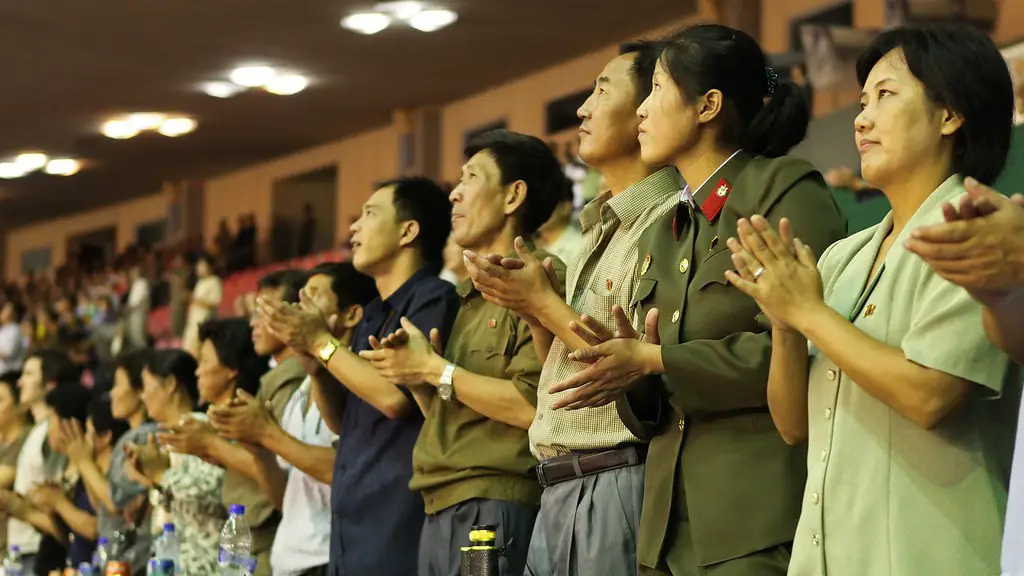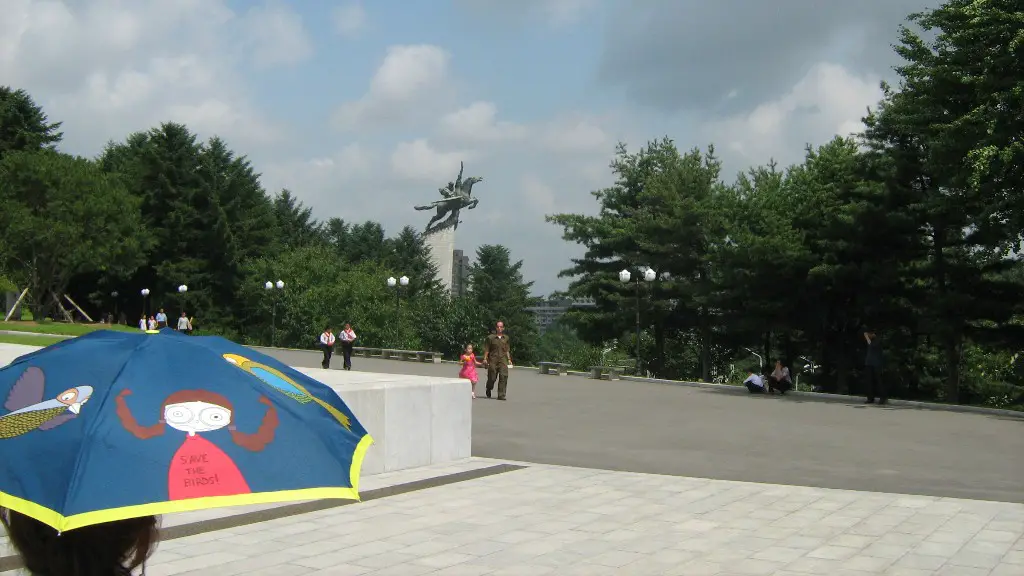Introduction – Why Hasn’t North Korea Collapsed
North Korea has been a closed and isolated society for decades, yet despite its economic inwardness and the focus of international sanctions, it has managed to survive. In a region of highly developed economies and democracies, North Korea is the only remaining communist government, and in many ways, the nation has endured despite strong external pressure. This article will explore why North Korea has not been able to collapse in the face of extreme isolation, poverty, and external sanctions.
History and Geography
The land and geographical location of North Korea have been factors in its ability to retain its communist rule. With rugged mountain ranges to the east and the sea to the west and north, North Korea benefits from the protection of both natural defensive barriers and large buffer areas. North Korea’s mountainous terrain also affects its security. North Korea is heavily militarised, with a large army and sophisticated military hardware, including nuclear weapons. This has helped deter external military action and support the regime’s rule.
On the economic front, North Korea is dependent on a handful of trading partners, primarily China and Russia, for economic support. The nation’s sizable trade deficit is largely financed through these two countries. Although these countries have imposed their own economic sanctions on North Korea, they have been flexible in allowing economic activities, such as tourism and coal exports, to continue. This economic lifeline has been critical in sustaining the North Korean regime.
The Cult of Personality
North Korea is heavily influenced by the cult of personality surrounding its leadership, which has been essential for the regime’s survival. Kim Il Sung, the founder of North Korea, has remained a powerful symbol and is widely admired as the father of the nation. His grandson and current leader, Kim Jong Un, is portrayed as a strong and capable leader, and North Koreans are taught to veneral him. This has helped to create a sense of loyalty and devotion among the North Korean people, which has been critical to maintaining the regime’s power.
The highly authoritarian and centralised form of government also serves to maintain control over the population. Political dissent is harshly punished, and people are frequently monitored to ensure compliance. Moreover, there is little access to outside news, which helps the regime maintain control over its population. The government also controls virtually all economic activity, and economic gains are used primarily to support the regime’s power.
Propaganda
Propaganda is used extensively in North Korea to control the population and to promote loyalty to the regime. The government controls all communication media and dissemination of news, and the media is used to spread its message. The media focuses heavily on the cult of personality surrounding the leadership, and messages glorifying the regime are disseminated throughout the population. Propaganda is also used to create an atmosphere of fear in which citizens are encouraged to comply with the government’s policies or face harsh punishment.
This technique of controlling public opinion has been so effective that many North Koreans are unable to distinguish between truth and lies, and North Koreans are generally unaware of what is happening outside of the country or their own personal situations. For example, North Koreans believe that the United States is a hostile nation and that their own government provides for their safety and prosperity.
Sanctions
The international community has placed various economic sanctions on North Korea in an effort to force the regime to abandon its nuclear program and human rights abuses. These sanctions have been effective in reducing foreign investment and reducing economic activity in North Korea, but they have failed to induce the regime to reform or surrender its nuclear weapons. This is due in part to the country’s reliance on China and Russia, which have been willing to provide economic support despite the sanctions.
The international effort to pressure North Korea has also been hampered by the lack of communication between the government and the outside world. This has made it difficult for the international community to understand North Korea’s motivations and intentions and to negotiate or compel the regime to change its course. As a result, the international community has had limited success in pressuring North Korea.
Conclusion
North Korea is a highly isolated and authoritarian nation that has managed to resist collapse despite extreme isolation and intense external pressure. This is due to the country’s strategic geography and its reliance on a small handful of trading partners, as well as the cult of personality surrounding its leadership and extensive propaganda. Additionally, sanctions imposed by the international community have been effective in reducing economic growth, but they have failed to induce the regime to abandon its nuclear program and human rights abuses.


